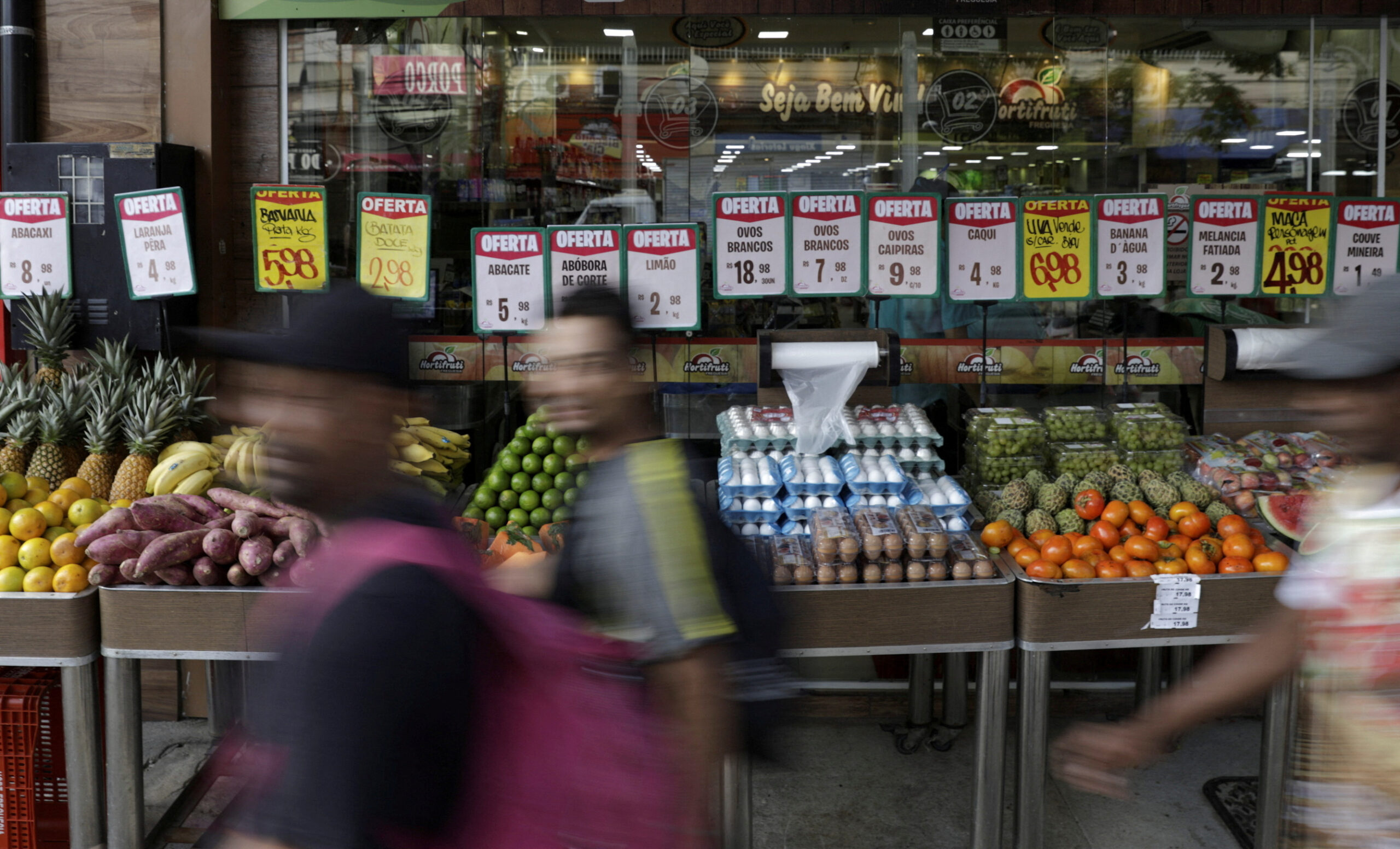
Food prices are displayed at a market in Rio de Janeiro, Brazil April 8, 2022. REUTERS/Ricardo Moraes/File Photo
SAO PAULO — Brazil’s consumer prices rose slightly more than expected in February, reaching the highest monthly figure in one year driven by increased education prices, government statistics agency IBGE said on Tuesday.
Inflation, measured by the IPCA index, was at 0.83 percent last month compared with January, while economists polled by Reuters expected 0.78 percent.
Education prices rose 4.98 percent in the month, responsible for 0.29 percentage points of the data as schools and universities hike tuition fees at the start of the year. Food and beverage prices also contributed to the results, IBGE said.
The monthly figure was the highest since February last year, when it had registered inflation of 0.84 percent.
The 12-month headline inflation came in at 4.5 percent, slowing down from the 4.51 percent registered in January, but above the 4.44 percent expected by economists.
READ: Brazil central bank cuts rates, with more likely to come
“The inflation picture remains benign in Brazil, and we still believe the headline rate will continue to fall during the second quarter,” said Andres Abadia, Chief Latam Economist at Pantheon Macroeconomics.
This should happen due to the “lagged effect of tight monetary policy,” he wrote in a note to clients, also mentioning struggling domestic demand, stabilizing commodity prices, and benign weather and supply conditions.
READ: Brazil unveils tax benefits for firms to boost investments
The monetary policy committee of Brazil’s central bank will meet next week to set its benchmark interest rate, which currently stands at 11.25%, after the authority kicked off its easing cycle in August with a 50-basis-point cut after nearly a year of unchanged rates at a six-year high of 13.75%.
Since then, it has consistently signaled the maintenance of the same easing pace for the meetings ahead.
“There’s not enough in this inflation release to make the central bank rethink the 50 bps cuts that it has signaled at the meeting next week and the subsequent meeting in May,” said William Jackson, Chief Emerging Markets Economist at Capital Economists.
“But if core inflation remains elevated, as we expect, we think Copom will shift to smaller 25 bps cuts around mid-year,” he added.